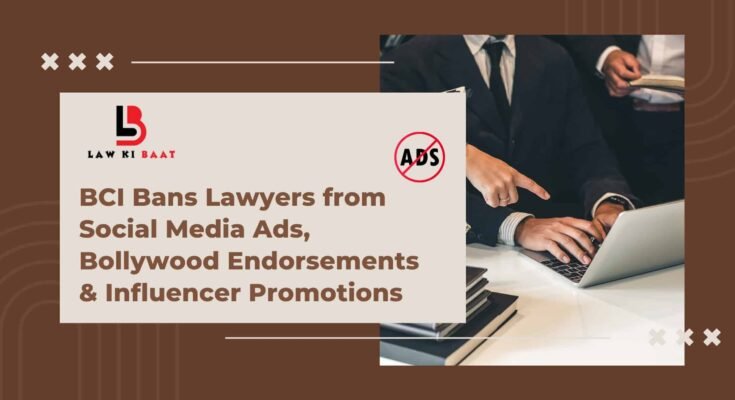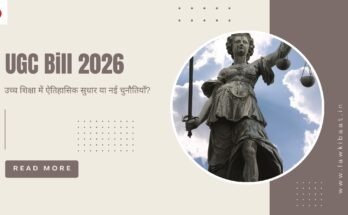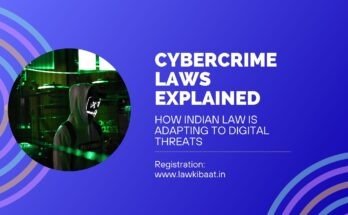The legal profession in India has always been guided by principles of integrity, ethics, and dignity. Recently, the Bar Council of India (BCI) issued a strong directive prohibiting advocates and law firms from engaging in digital advertising, Bollywood collaborations, or influencer-based promotions. This move is being widely discussed as the BCI Ban on Legal Advertising in India, marking a significant step in regulating professional conduct in the age of social media.
The decision was triggered by growing instances where lawyers and firms were using Instagram reels, celebrity endorsements, and influencer campaigns to market their services. While this may appear innovative, it clearly violates the Bar Council of India rules, especially Rule 36 of the Advocates Act, which prohibits solicitation and advertisements by advocates.
This blog by Law ki Baat explores the details of the BCI Ban on Legal Advertising in India, its legal basis, implications for lawyers, and the larger question of how the profession should adapt to digital platforms without compromising ethical values.
Historical Context of Legal Advertising in India
Legal advertising in India has always been tightly regulated. Unlike doctors, consultants, or other professionals, advocates have faced strict legal advertising restrictions. The logic is that law is not a business but a noble profession, where dignity and credibility matter more than commercial promotion.
- Rule 36 Advocates Act: This provision explicitly states that advocates cannot solicit clients through advertising, circulars, or any promotional activity.
- Advocates Act 1961 Section 35: Provides for disciplinary proceedings if an advocate engages in misconduct, including advertising.
- Limited relaxation was allowed in 2008 when lawyers could publish basic details (name, contact, qualification, areas of practice) on websites, but even that is strictly regulated.
Against this background, the BCI Ban on Legal Advertising in India is not entirely new—it is an extension of the existing principle that the profession should not be commercialized through promotions.
What Triggered the Ban?
The BCI Ban on Legal Advertising in India was triggered after a prominent law firm collaborated with Bollywood actor Rahul Bose in a promotional Instagram reel. This was seen as an attempt to use Bollywood endorsements lawyers style marketing, which the BCI viewed as damaging to the profession’s ethical foundation.
Soon after, multiple reports surfaced of law firms hiring social media influencers to promote their services through Instagram reels, YouTube videos, and podcasts. Such tactics fall under influencer marketing ban advocates, clearly violating social media guidelines for advocates.
These developments pushed the BCI to act, reinforcing that lawyers cannot adopt marketing methods common in other industries.
The Bar Council of India’s Directive
The official circular issued by the BCI lays down the following points:
- Absolute prohibition on using Bollywood actors, celebrities, or influencers for legal promotions.
- No digital advertising through paid promotions, sponsored posts, or reels.
- Any violation will be treated as professional misconduct lawyers under Section 35 of the Advocates Act 1961.
- Law firms and advocates must immediately take down promotional content or face disciplinary action.
- State Bar Councils (like Delhi, Punjab, and Haryana) must monitor and act against violators.
This directive has brought clarity but also sparked debate, especially among young lawyers trying to establish themselves in a competitive market.
Rule 36 Advocates Act and Its Importance
At the heart of the BCI Ban on Legal Advertising in India is Rule 36 Advocates Act, which states that:
- Advocates shall not solicit work or advertise, directly or indirectly.
- They cannot use circulars, personal communications, interviews, or media appearances to promote themselves.
- Publishing photographs or success stories in connection with cases is prohibited.
This rule aims to maintain legal ethics in India and prevent the profession from turning into a marketplace driven by flashy promotions rather than competence and integrity.
Social Media Ban for Lawyers: Extending Old Principles to New Platforms
With the rise of Instagram, LinkedIn, and YouTube, many lawyers started exploring content-driven strategies. While educational blogs and knowledge-sharing are allowed, crossing the line into digital advertising prohibition legal profession—such as using reels for client solicitation—amounts to misconduct.
The social media ban for lawyers essentially extends Rule 36 Advocates Act to modern platforms. It recognizes that while technology evolves, ethical boundaries remain the same.
Bar Council of Delhi Warning
Shortly after the BCI directive, the Bar Council of Delhi warning reinforced the national stance. It cautioned lawyers that promotional social media posts, reels, or advertisements could lead to suspension of license. The Council even directed advocates to remove existing content immediately.
This strict warning demonstrates how seriously the matter is being treated, ensuring that Delhi-based practitioners comply with the BCI Ban on Legal Advertising in India.
Punjab and Haryana Bar Council Notice
The Punjab and Haryana Bar Council notice echoed similar sentiments. It warned that lawyers indulging in lawyer marketing ban through reels, endorsements, or influencers would face disciplinary action, including suspension of advocates for advertising.
These state-level reinforcements show a coordinated effort to ensure uniform compliance across India.
Why Is Legal Advertising Prohibited?
The rationale behind the BCI Ban on Legal Advertising in India lies in protecting the sanctity of the legal profession.
Key Reasons:
- Preventing commercialization – Law should not be treated like selling products.
- Maintaining dignity – Advocates should be known for knowledge, not marketing tactics.
- Avoiding unfair competition – Wealthier firms could outspend others in promotions, creating inequality.
- Protecting clients – Vulnerable people might be misled by flashy ads or celebrity endorsements.
Thus, legal ethics in India demand restraint in marketing and a focus on credibility through practice.
Consequences of Violating the Ban
Violating the BCI Ban on Legal Advertising in India invites strict penalties:
- Professional misconduct lawyers charges under Section 35 Advocates Act 1961.
- Suspension of advocates for advertising for a fixed period.
- In serious cases, removal from the rolls of advocates.
- Reputational damage—once misconduct is established, credibility is lost.
Lawyers must remember that even one violation can have long-term consequences.
The Debate: Ethics vs Modern Reality
While many support the BCI Ban on Legal Advertising in India, others argue that in the digital age, a blanket ban is impractical.
Supporters say:
- It maintains the noble character of the profession.
- Prevents turning the legal sector into a business.
- Protects clients from exploitation.
Critics argue:
- Young lawyers struggle to gain visibility without digital tools.
- Global jurisdictions like the US and UK allow limited legal advertising.
- Ethical educational content should be distinguished from promotion.
This debate reflects the challenge of balancing legal ethics in India with the need to adapt to new realities.
Alternatives for Lawyers: Ethical Visibility
While the lawyer marketing ban prohibits advertisements, lawyers can still build visibility ethically:
- Publishing educational blogs (like this one on Law ki Baat).
- Participating in seminars/webinars as speakers.
- Writing research papers and opinion columns.
- Building reputation through pro bono work.
- Sharing legal updates on LinkedIn in an informational (not promotional) way.
These methods comply with social media guidelines for advocates while still enhancing credibility.
Comparative Perspective: Advertising in Other Jurisdictions
- United States – Lawyers are allowed to advertise, but with restrictions (cannot be misleading).
- United Kingdom – Permits advertising under regulated guidelines.
- Australia – Allows digital marketing with consumer protection checks.
India, however, remains conservative. The BCI Ban on Legal Advertising in India shows that ethical concerns take precedence over modernization pressures.
Case Study: DSK Legal Incident
The case that sparked the controversy involved DSK Legal using Bollywood actor Rahul Bose in a promotional video. This Bollywood endorsements lawyers attempt was immediately flagged by the BCI as a violation.
It illustrates how even reputed firms must adhere strictly to the digital advertising prohibition legal profession principle.
The Future of Legal Ethics in India
Looking ahead, the BCI Ban on Legal Advertising in India may encourage:
- More robust monitoring by Bar Councils.
- Stricter enforcement against repeat offenders.
- Discussions on whether limited, regulated advertising should be allowed.
- A culture of thought leadership and expertise-driven visibility rather than paid promotions.
Conclusion
The BCI Ban on Legal Advertising in India represents a defining moment for the profession. By prohibiting social media ads, Bollywood endorsements, and influencer promotions, the Bar Council of India has sent a clear message: legal practice is about integrity, not marketing gimmicks.
While critics may argue that this creates challenges in the digital era, it is undeniable that the ban protects legal ethics in India and prevents the profession from being reduced to a marketplace. For lawyers, the path forward lies in finding creative yet ethical ways to establish authority—through education, knowledge-sharing, and genuine service.
At Law ki Baat, we believe this development should spark a deeper conversation about balancing tradition and modernity, ensuring that the dignity of the legal profession remains intact while adapting to the realities of today’s interconnected world.




